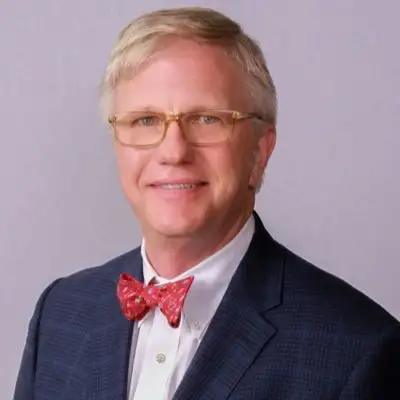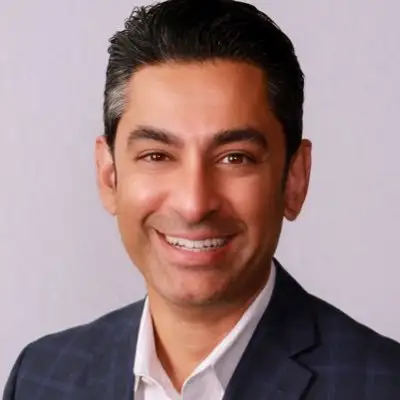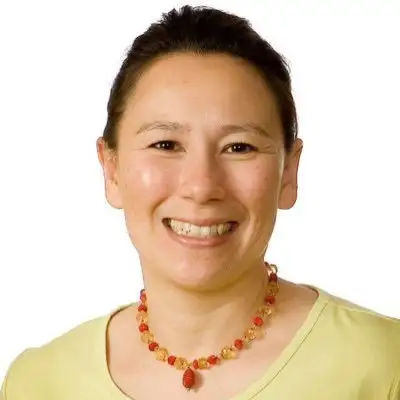Creators and Guests




What is Faisel and Friends: A Primary Care Podcast?
Dive deep into the cutting edge of healthcare transformation, explore innovative approaches to primary care, and tackle physician burnout. Join hosts Dr. Faisel Syed and Dr. Dan McCarter as they delve into the issues plaguing the country's most vulnerable populations. They engage with healthcare thought leaders, unsung heroes, and other professionals who share their perspectives on revolutionizing the healthcare industry and rebuilding faith in medicine. If you're a primary care physician seeking to make a difference, this podcast is your guide to transforming healthcare through high-touch primary care.
Hi, everyone. I'm doctor Faisel Syed.
Dan:And I'm doctor Dan McCarter.
Faisel:And you're listening to Faisel and Friends. Where we believe access to primary care is a right, not a privilege.
Dan:Faisel and Friends is brought to you by Primary Care for America, a diverse collaboration of innovators leading the way towards comprehensive, continuous, and coordinated primary care.
Faisel:Today, we're talking to Dr. Liz Fowler, director of the Center For Medicare and Medicaid Innovation, about breaking barriers in primary care through innovative models. This episode was recorded on May 22, 2024 during a live interview at the annual Primary Care for America event, Primary Care 24.
Faisel:This is the first time that we're doing it at a live venue. So, doctor Dan, can you believe this? Almost 200 episodes in.
Dan:That's right. It's good to be here with you, Faisel.
Faisel:Here we are Washington DC at the National Press Club with none other than Liz Fowler. Thank you so much for joining us today.
Liz:Thanks for having me. I really appreciate it.
Faisel:The innovation center has done so much in primary care. Before you arrived, there was already a history of CPC, comprehensive primary care, CPC plus, comprehensive primary care plus, and the new PCF primary care first. Since you joined though, you've added MCP, making care primary, primary care ahead, all payer health equity approaches and development model, and ACO PC Flex. You've also laid out this ambitious goal of having 100% of Medicare beneficiaries in accountable care by 2030. So with, of course, you know, primary care at the cornerstone of that goal, your work has been transformative for primary care.
Faisel:What inspired you to pursue this path?
Liz:Well, thanks, Faisel, and I really appreciate this. I've never been on a live podcast, so this is a little frightening because you can't go back and erase things. Right?
Faisel:Oh, no. We could figure out a way. There's like at least a 30 second delay. Right?
Liz:Again, thank you. I I think you know that my father is a primary care physician and my grandfather was, chair of the internal medicine department, at the University of Iowa. So, I have long roots in primary care and and think it's really critical. But now I'm in the role of directing the CMS Innovation Center, and I think as I see our role, we have a distinct statutory responsibility to look for ways of improving the health care system for patients and for providers. And I think in particular, we have an important role in supporting and strengthening primary care.
Liz:That predates my tenure, as you said. We've been testing models for 10 years, CPC, CPC Plus, PCF, And we think there's a real value to these alternative payment models. It's a way of speaking to the previous panel, providing upfront investments for what you need to be successful practices, providing regulatory flexibility to get out of that hamster wheel of the 15 minute visits and all of everything that goes along with that, the tools and data to be successful, the financial stability through models like prepayment, because we're testing with ACO REACH and, primary care flex, and then also those incentives to improve quality. We think we have a role to play basically living into the NASEM recommendation that we're paying for teams of primary care physicians to care for people instead of paying for doctors to deliver services. We've taken all of the lessons that we've learned.
Liz:We have these three new models which we're really excited about, and we're thinking about what our pathway to permanence is for some of these innovations. So a lot of success stories, which I'm happy to share, but basically a lot of excitement and enthusiasm for the progress that we're making and the momentum that we're building.
Faisel:We engage a lot, with residents, primary care residents, internal medicine, family medicine residents, and one of the questions that they ask us is like they hear about these different models. They wanna know about the bigger picture and really how does it all how do all these pieces of the puzzle sort of fit together?
Liz:Yes. That's a good question. We're testing a lot of different models, but again, based on the lessons that we've learned from these previous models and the the new models that we've put out there, we think that the model that works best is is this investment in primary care, and we are looking for those permanent pathways. I think this is not an idle exercise. We spend a lot of time thinking about how to scale and expand some of the innovations we're testing.
Liz:I'll just point to a couple of successes like the pioneer model, the ACO investment model that has become a permanent part of the Medicare shared savings program, and now looking at the ACO PC Flex model where we're using that shared savings program as the chassis for our innovations. We are actively looking for other mechanisms to make sure that we can maintain this momentum and keep these, innovations going.
Faisel:It's actually it's because of that that many of us, you know, we many of us started in community health. I started my career in community health at a large community health center. And one of my frustrations in the community health world was the reduced frequency of visits per patient per year. What pushed me and many of my my colleagues out of from that space into the full risk Medicare Advantage world was not only being able to address health equity, but also to be able to increase, health outcomes. Again, just going back to I just we actually were we were just in Nashville at Meharry over over the weekend and one of the questions that we get asked is, you know, what are what are the models that can help address both issues?
Faisel:Like, what what to address both not only increasing access, but also with, increasing the health outcomes?
Liz:Those are really important questions, and I think we are testing a couple different things. So first of all, I'm really excited that you're working so closely with the FQHC community and and that partnership is really important. And we've set out very specific goals for increasing our footprint, with community health providers and, including financial incentives, to enroll and work with for our ACOs to work with those providers. And it is showing results. We're more than doubling, the number of FQHCs in some of our models.
Liz:Making Care Primary also has explicit incentives for FQHCs to come into models and for those small and independent practices who might not have stepped into the value based care world. So we think it's possible, and we also think you can't really address equity unless you unless you really go out there and do this recruitment. And so we've developed pretty sophisticated tools where we're looking very carefully at who's coming into the models and how we can target those communities and those providers that serve those communities to make sure that we're reaching them.
Dan:You know, as a kid, and I'm showing my age now, I I had a vinyl record with John Kennedy's speech on it about by the end of the decade, we'll go to the moon. And when thinking about your 2030 goal for every Medicare patient to be in an accountable care reminds me of that moonshot goal. So, what's motivating that for you? I mean that that that's a huge goal. You're you're putting a lot of energy into it.
Dan:So what's your personal motivation for that?
Liz:Well, I think my personal motivation is that we have a responsibility to improve the health care system and make it better than we found it. And so I feel like that's been a lot of my career is thinking about ways of improving the health system, both expanding access and and now really improving and transforming health care, and making sure that primary care is strong for the future. I the last panel was talking about how scary it would be if primary care went away. We don't we don't think about that. We we set this goal, that 2030 goal, it's it's we want everyone to have, and it's not just it's a 100% of Medicare beneficiaries, but it's also the vast majority of Medicaid beneficiaries as well.
Liz:We want to see that patients have that relationship with a clinician who is responsible for total cost of care and quality, and that's based on 10 years of testing over 50 models. And the way I describe the history of the innovation center, we threw a lot of spaghetti at the wall for the 1st 10 years to see what sticks, and what we know works and what we know improves care is really that accountable care relationship with an advanced primary care provider or an accountable care organization. So that's what inspired the goal, and and I think you have to set targets. Otherwise, you're not you know, you have to chart the path for where you're going. Otherwise, you'll never get there.
Dan:And we've I've heard this statistic recently. I don't remember where it came from that the average Medicare patient has something like 7 specialists they see in addition to a primary care physician. So how are how do you envision these models helping build a relationship between primary care and specialty care with the patient so that that the patient's getting what they need out of all of this?
Liz:You described it accurately, and we've looked at that same data about how complex care is getting for patients and and providers, for primary care providers to be able to manage, relationships with all those specialists. And frankly, we're not going to meet our accountable care goal if we don't find a way to integrate specialty care with primary care. So we've laid out a specialty care strategy. I'll just describe it very briefly. Four main elements.
Liz:The first is greater transparency, particularly in data, that might help primary care providers make better referrals. So can we give data on specialists and specialist performance to help them manage those referrals? And we've started doing that in February this year. We gave all of our shared savings participants and ACO reach participants and advanced primary care participants information about sort of we call them shadow episodes to help them help manage those costs. The second element is we need to continue the momentum on episodes.
Liz:So, we have extended our bundle payment for model for an additional 2 years and then we just proposed a new episode based model that is mandatory, we're proposing it to be mandatory, but we're giving a episode based model that is mandatory. We're proposing it to be mandatory, but we're giving a lot of thought into how that refers back to primary care. 3rd element is really thinking about, how we build out those incentives, for ACOs and advanced primary care practices to work more closely with specialists. The draw of fee for service is very strong for specialists. It's hard to get them to coordinate.
Liz:So can we set out can we include incentives for things like econsults and ereferrals? Can we provide targets spending targets for high cost, high volume specialist services? And then finally, are there ways of bringing in specialists to, into these ACO and accountable care, opportunities? So we're exploring all of that. I think you'll start to see more as we start, implementing this, in real time.
Faisel:Yeah. That timing is perfect because we're hearing also from the specialty side that, you know, that they're they're getting tired of doing, quite frankly, primary care work, the work that's not being done properly by primary care. Primary care is getting frustrated by practicing, you know, we're frustrated in practicing in such a limited view, limited way. How do you envision this helping improve the work life for all physicians? I mean, I think once we get providers out of that and we've,
Liz:I mean, I think once we get providers out of that, and we've you've heard it here before, that hamster wheel of 15 minute visits with a lot of paperwork, that's really taken the joy out of practicing medicine. We want to instill that joy and we want to make sure that joy is still there. And I have, in my site visits to model participants and and practices around the country, found that we have, I think, a model that those alternative payment models that really can look at prepayment, for example, the capitated approach to primary care, the tools to help them manage so they can focus on the patients who need it most, know who's going in likely to go into the hospital or who's just coming out of the hospital, and help them focus on those patients, do more care at home, rely more on nurse practitioners and other supportive services and supportive providers, we think that there's a way to bring joy back into the practice of medicine, which we think is fundamental to improving workforce.
Faisel:The Innovation Center has had a mixed record of expanding the models under its statutory authority. Can you talk a little bit about how you're thinking about the impact of the center's work and the pathways to make permanent changes in Medicare?
Liz:Yeah. Well, that is a really good question. We're spending a lot of time, again, on that scaling and expansion. You know, certification was laid out in the statute as the pathway for permanence in Medicare, but it's a really high bar. It requires our actuaries to sign off and say that there's a 95% certainty of net savings, which means that we have to incorporate those investments.
Liz:So, and nothing gets to that point, especially in a 5 year model. You think about all these areas in health care that need investments. They need additional funding, not cuts and not savings. And so it's really hard to turn that around in 5 years. So we're looking at longer models.
Liz:We're looking at other pathways for permanence and scaling in Medicare. For example, I mentioned the Pioneer and the ACO investment model. We're also looking more closely at quality. So the statute says, you know, what if you were budget neutral but you improve quality? That's also a pathway, and so last month we outlined a quality pathway.
Liz:If we can demonstrate improved quality without increasing costs, that's also a way to permanence. We have not really leaned into that pathway, but we are spending a lot of time thinking about how to make that a reality.
Faisel:It takes time to influence positive behavior changes. I think about just the work that we've been doing for the last couple several years, mostly underserved minority populations. It takes the doctors and the teams looking after these panels of patients take a year and a half, 2 years just to stay establishing a patient panel is one thing, but to stabilize a patient panel, you know, to earning the trust and then medically stabilize, I mean, it takes takes time. It take 2 years easily, you know, some of the best doctors. Doctor Dan, we were talking talking and that you were talking to me before this about your gym.
Dan:Right. I I was just thinking of it. It's so hard for primary care doctors to take on risk and add the additional services they need in a model that may be there, may not be there when it goes away. And I I realized my gym has exercise classes. And what they allow you to do is pay $12 per class, but it caps out at $25 a month.
Dan:So once you go past the 2 classes or you enter the 3rd class, you pay the $25 for the month. But the next month, it resets again. Meaning, they haven't looped you into actually having to pay 25 dollars every month. If you use it 1 month, you get it. If you don't use it 1 month, you get it.
Dan:And so, I was wondering how we help primary care physicians work in a model thatis going to provide good care for their patients, but support them. And then if they fall behind in 1 month, they not, they don't necessarily get a gotcha. And I don't know if there's been any thought into that.
Liz:Well, maybe we need to be talking to your gym. Spend some time talking to them.
Dan:Right!
Liz:You know, I think we're trying a little a lot of different mechanisms. I think we need pathways where there's really not that sort of risk, where you don't get dinged. And that's what Making Care Primary was really all about, is that sort of entry level baby step way into value based care where you're not going to be at risk, we're not going to ding you, and maybe you move up that chain and you take on risk at some point later on, but more for your performance, not the financial risk. But there are also those out there who want to take that financial risk and are ready and willing and they're they know they've figured out what that formula is and we want to make sure there's opportunities for them too. So we're thinking about sort of a suite of opportunities but at the same time we need to simplify things.
Liz:We can't have multiple different pathways that sort of collide with each other. So we're trying to do both things, but it's a challenge. But again, you know, I'm happy to talk to your gym because it sounds like they've come upon a magic solution.
Dan:I don't know about magic, but it does does get people to come to classes on a regular basis.
Liz:Do you go to class?
Dan:I did more before COVID, honestly.
Liz:Didn't we all?
Faisel:We hear from our primary care colleagues, who are still predominantly fee for service, and they're trying to make the transition into value based care, and they they they talk about, you know, the concept of having one foot in each boat and the struggles with making that transition. I mean, they're many of them are operating on margins of we've met doctors who are operating margins, literally 1 and a half to 3 percent margins. I mean, really, really tight margins, and there's a legitimate fear about taking on the risk and what would happen to the viability of the practice. Do you have a vision on how to integrate the value based care models across all these different lines of business Medicare, Medicaid, and even with with the private payers.
Liz:When we laid out a strategy when I first started, at the Innovation Center, multi payer alignment, that's sort of partnering with across the health system to achieve transformation. That was really one of our sort of 5 driving goals. And I will have to say it's probably been the most challenging to get everyone, as as you know, in a very complex health system with that's very fragmented, getting everyone on the same page and and moving in the same direction is is not easy. And we've had mixed success with that. You know, we've said, come join our model as a private insurer or Medicare Advantage Plan or and move in the same direction in the context of our model and sort of make success.
Liz:So now we're focusing on directional alignment, and we're also trying different approaches to bring folks to the table. We have state transformation collaboratives where we bring all the players in 4 states together. You help set the goals. It's not us dictating, but you help set the goals. Or that's run by our, healthcare payment learning and action network.
Liz:Making Care Primary is another approach where we only put that model into place in states where the state Medicaid agency agreed to be a player, so we've got Medicaid on the same page. And then the AHEAD model, which is really our big bet of sort of fundamental restructuring where there's a requirement for states coming into that model where they've got to bring along both Medicaid and commercial payers. I will say it's easier to get sort of state and local payers. It's been harder to get the national players, to come to the table, and I'm sure you can appreciate that.
Faisel:Absolutely. I mean, even with, opening practices across the the country, I mean, it is so it is so community driven, especially when you're trying to address the social issues. Those community partnerships really drive the success. I mean, it it it has allowed us to make it or break it. There's so many groups.
Faisel:My god. We have so many groups of people whose minds we gotta change. What was it?
Dan:Yeah. No. I was just wondering, do you have any initial lessons learned from the AHEAD model for what providers have been successful in that model?
Liz:Well, it hasn't started yet. We should start announcing states in the model. It's based on the Maryland total cost of care model and the Vermont all payer ACO model and then the Pennsylvania rural hospital model. We'll start to see more when we start announcing. We said we would allow 8 states, to come in, and I've been really pleasantly surprised to see a lot of states really interested in that.
Liz:But part of that model includes setting primary care targets for spending in a state and the primary care ahead model is really focused on bringing primary care innovation. So it's not just a hospital model. It really is looking at a fundamental restructuring, so stay tuned for that soon.
Faisel:We're talking about all the different groups that are involved in health in this fragmented world. If you had to pick one group to change this one group's mind in health care delivery, who would that group be and why? And what would you what would you do?
Liz:So maybe this is a non traditional answer and you were expecting me to say something about primary care providers. I would say if I could change one group's mind, it would be maybe the mind of the public to really appreciate that health care is a right and not a privilege. I think once you understand that health care is a right and everybody deserves and should have access to basic care, I think you can start making progress on how important it is to have that strong primary care foundation in our health care system. And I think so that's that's a pretty broad group. I don't I don't know if that's the answer you were expecting or looking for, but
Faisel:That's an answer I love hearing though because I'll get out of here. Right? And not a privilege, I think. But I think when we say that, there are people who are benefiting and profiting from this $4,500,000,000,000 system who don't wanna hear that. Because as long as it's a privilege and it's difficult to access, there are people who are profiting and benefiting from that.
Dan:Don't you think a lot of it's the same reason we have a difficulty getting people to stop smoking or exercise more or go to their gym glasses is they think they'll do it. You know, they'll pay for it when they need it but everybody needs it whether they know it or not. And how do we convince everybody that they need, certainly for primary care but for health care in general, they need to take care of themselves so they can take care of what else they wanna do in their lives?
Liz:Well, I would say that primary care plays a fundamental role in that sort of prevention and access to basic services that keep us health healthy. Who's gonna tell them not to to keep smoking besides their spouse? But but their primary care provider is definitely gonna be telling them that. I mean, if you want lifestyle changes and really make a difference in sort of primary care prevention, this is this is where it's at.
Faisel:Well, thank you so much for taking this time like this in this format to have this conversation. If you had to have one parting message to this group and to anybody listening about the future of value based care, what would that be?
Liz:Well, I would say we're really bullish. We think we're making a lot of progress on primary care and on a lot of different fronts. And I wanna just end on that message that we think a better primary care system is possible, and we are committed to moving in that direction and making progress.
Faisel:Wow. Liz Fowler, thank you so much. I can't believe that here we are live recording our 1st live pop podcast episode.
Liz:I'm still not comfortable with the live part. We'll see how that turns out.
Dan:What are your thoughts on breaking barriers in primary care through innovative models? You've heard ours. Now we want to hear yours.
Faisel:Email us at faiselandfriends@gmail.com, and your question could be featured on the podcast.
Dan:If you like this episode, leave us a review and tell us how we're doing. And don't forget to subscribe wherever you listen to podcasts so you never miss an episode.
Faisel:Connect with us on social media by following Faisel and Friends.
Dan:And follow Primary Care for America on LinkedIn and Twitter.
Faisel:I'm doctor Faisel.
Dan:And I'm doctor Dan.
Faisel:And thanks for listening. This podcast is brought to you by Primary Care for America Collaborative and produced by Split Prism Productions.
